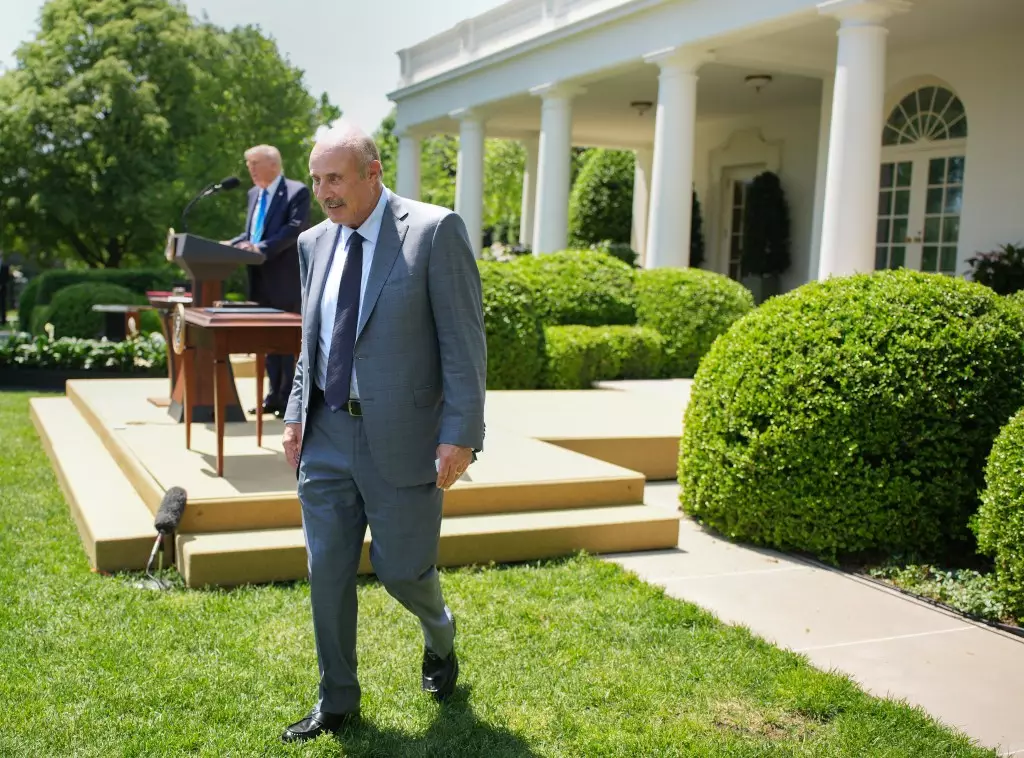In the high-stakes world of television and media, even the most celebrated figures are not immune to hubris. Dr. Phil McGraw, a name synonymous with daytime talk shows and self-help fame, has recently found himself embroiled in a series of legal and financial calamities that cast a shadow over his once-promising empire. What was initially celebrated as a strategic move into new media platforms and broader distribution channels has instead uncovered a web of deception, financial mismanagement, and contractual betrayals. The story of Dr. Phil’s recent troubles serves as a stark reminder: ambition must be tempered with integrity, and no amount of fame can shield one from the repercussions of unscrupulous dealings.
The core of the controversy revolves around a failed business venture with Trinity Broadcasting Network (TBN), a major Christian broadcaster with a storied history. The ambitious partnership aimed to revolutionize the distribution of Dr. Phil’s programming but quickly devolved into accusations of fraud and breach of contract. TBN alleges that Dr. Phil and his company, Peteski Productions, engaged in a calculated scheme to mislead and exploit their faith-based partner for personal gain. These claims are underpinned by serious assertions that Dr. Phil falsely inflated viewership figures, misrepresented financial expectations, and manipulated contractual terms to accelerate the deal’s closure. The fallout underscores a bitter truth: in pursuit of financial gain, ethical boundaries can be tragically blurred, leading to reputational and legal ruin.
The Reality of Deception and Its Cost
At the heart of the legal battle lies a tapestry of alleged deceitful practices. TBN alleges that Dr. Phil painted a picture of a lucrative future—one in which CBS paid him an enormous sum, and the network was on the verge of a major distribution breakthrough. These promises, TBN claims, were fabrications designed to induce urgency and secure a rapid agreement. The Christian network contends that Dr. Phil demanded immediate contractual commitments and upfront payments based on false guarantees, effectively pushing through a deal that was ultimately built on falsehoods.
What makes this saga even more disconcerting is the suggestion that Dr. Phil’s tactics resemble those of a swindler rather than a seasoned media professional. His admission of using a “gangster move” and referring to negotiations as “poker” lend a tawdry tone to a story that should have been about collaboration and growth. Instead, it devolved into a bitter legal war, exposing the vulnerabilities of trusting high-profile figures to operate ethically behind closed doors. The sharp contrast between Dr. Phil’s wholesome public image and the alleged underhanded tactics underscores a troubling disconnect—one that raises questions about how fame may sometimes mask a willingness to cut corners.
The Consequences of Ethical Lapses in Media Business
The repercussions of this scandal extend far beyond individual reputations. For Dr. Phil, the fallout threatens to erode the trust that built his career. For TBN, the incident highlights the risks faced by organizations engaging with powerful personalities eager for media dominance. The legal arguments—ranging from breach of contract to allegations of fraud—are emblematic of an industry where monetary ambitions often clash with foundational ethical principles.
Moreover, the financial issues faced by McGraw’s ventures reveal the inherent dangers of overextending oneself in a fickle industry. The failed attempt to establish a comprehensive media platform or streaming service within a short period illustrates how dreams of rapid expansion can lead to catastrophic misjudgments. The reality is that media projects of this scale require not just bold promises but meticulous planning, transparent dealings, and integrity—all of which appear to be in short supply here.
Finally, this episode underscores a broader cultural commentary: the danger of equating fame and influence with infallibility. As media personalities like Dr. Phil vie for relevance in an ever-evolving landscape, their actions speak louder than their words. When the veneer of success cracks, it reveals the foundational weaknesses that could have been mitigated—or avoided—had ethics been prioritized over expediency. The fallout from this legal battlefield is a cautionary tale for aspirants and veterans alike: integrity may be the most lucrative asset in the long run.
